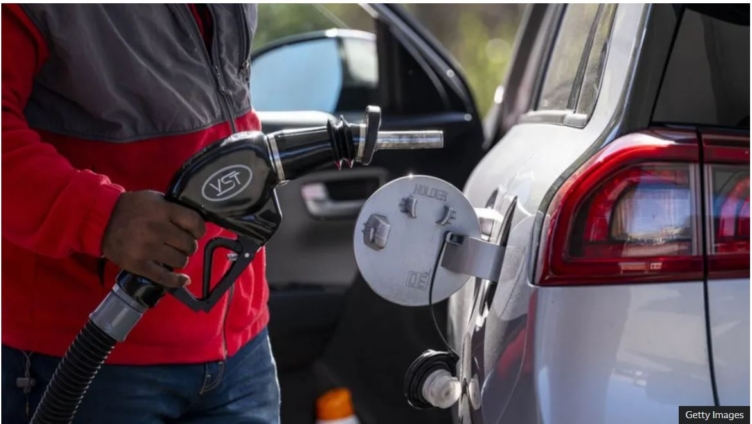Consumer prices in the US rose faster than expected last month, in a sign that the fight to slow inflation has stalled.
Prices rose 3.5% over the 12 months to March, up from 3.2% in February, the US Labor Department said.
Higher costs for fuel, housing, dining out and clothing drove the increase.
Analysts warned that the lack of progress in curbing price rises will force the US central bank to keep interest rates higher for longer.
Higher rates help stabilise prices by making it more expensive to borrow for business expansions and other spending. In theory, that in turn slows the economy, and eases the pressures pushing up prices.
The Federal Reserve's key interest rate is now at the highest level in more than two decades, in the range of 5.25%-5.5%.
Forecasters had expected the bank to start lowering borrowing costs this year, reflecting the fact that the inflation rate, which tracks the pace of price rises, has fallen significantly since hitting 9.1% in 2022.
But recent economic data, including strong jobs creation figures last week, has raised doubts about how soon those cuts might come.
Shares on Wall Street closed lower on Wednesday as investors had been betting that rates could soon be cut.
Analysts, who once expected rate cuts as soon as March, have been rapidly revising bets, with many now not expecting any until later this summer and some predicting the bank could wait until next year.
What the Fed decides to do is likely to shape decisions by central banks around the world, said Neil Birrell, chief investment officer at Premier Miton Diversified Funds.
"The Fed has got some head scratching to do and if other central banks were waiting for the Fed to move, they have got a conundrum on their hands now," he said.
Inflation cooled rapidly over 2023 as pandemic-era supply issues healed and the spike in food and energy prices sparked by the war in Ukraine faded, but it still remains higher than the bank's 2% target.
An uptick in oil prices in recent months has also pushed energy costs higher, while prices for services show little sign of stabilising.
The Labor Department said prices had jumped 0.4% from March to February, the same as in February.
Higher petrol and housing costs accounted for more than half the increase.
Car insurance, medical care and costs for internet also contributed.
So-called core inflation, which is seen by economists as a better indicator of future trends because it does not include more volatile food and energy prices, stood at 3.8%, the same as in February.
"We shouldn't overreact to the jump in headline inflation - which was all about energy," said Brian Coulton, chief economist at Fitch Ratings. But he added: "The details are not at all reassuring for the Fed."
Latest Stories
-
Registrar of Companies assures support for companies on verge of insolvency
9 minutes -
Fear grips Nkawkaw Zongo as three men are gunned down in cold blood
13 minutes -
Pass Conduct of Public Officers Bill to ensure ethical governance – Ex-CHRAJ boss Anna Bossman urges
16 minutes -
KNUST partners herbal medicine practitioners to improve standards for global market competitiveness
19 minutes -
World leaders pledge over $170m to WHO at Geneva Assembly
24 minutes -
WHO Member States adopt pandemic agreement to strengthen global health security
26 minutes -
Producer inflation tumbles to 18.5% in April 2025 – GSS
27 minutes -
Ghana Cedi’s strength, falling inflation defy global economic unease
45 minutes -
Lands Commission outlines measures to decentralise operations at district level
60 minutes -
I’m optimistic Black Stars will get better – Winfried Schäfer
60 minutes -
2025 Unity Cup: Nigeria announce squad for four-nation tournament
1 hour -
Ukrainian ex-top official shot dead outside Madrid school
1 hour -
Ghana hosts National Finals of 24th ‘Chinese Bridge’ contest in Cape Coast
1 hour -
British tourist arrested in Namibia over nude photos of children
1 hour -
Bosome Freho DCE pledges to improve roads, infrastructure for local development
1 hour

